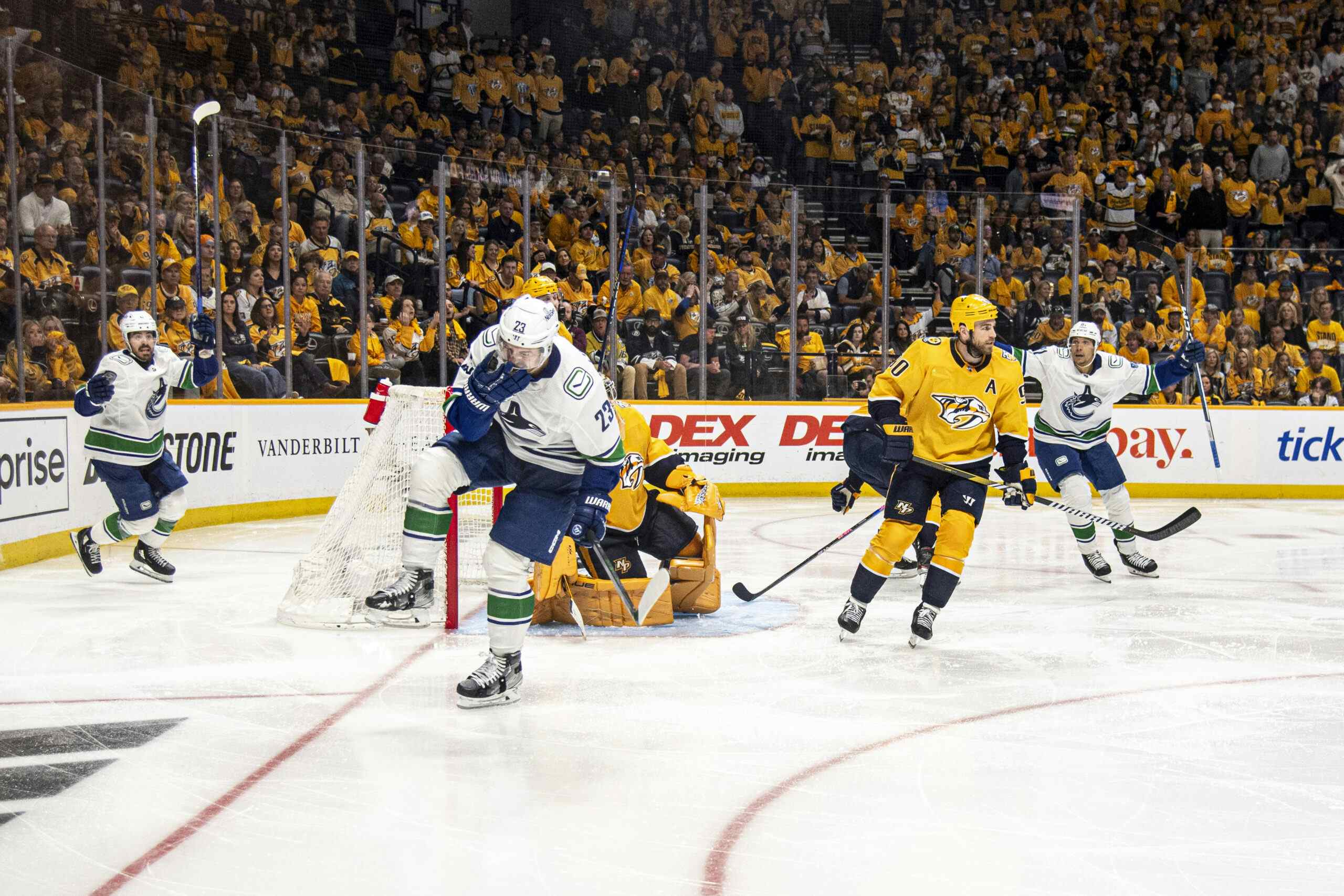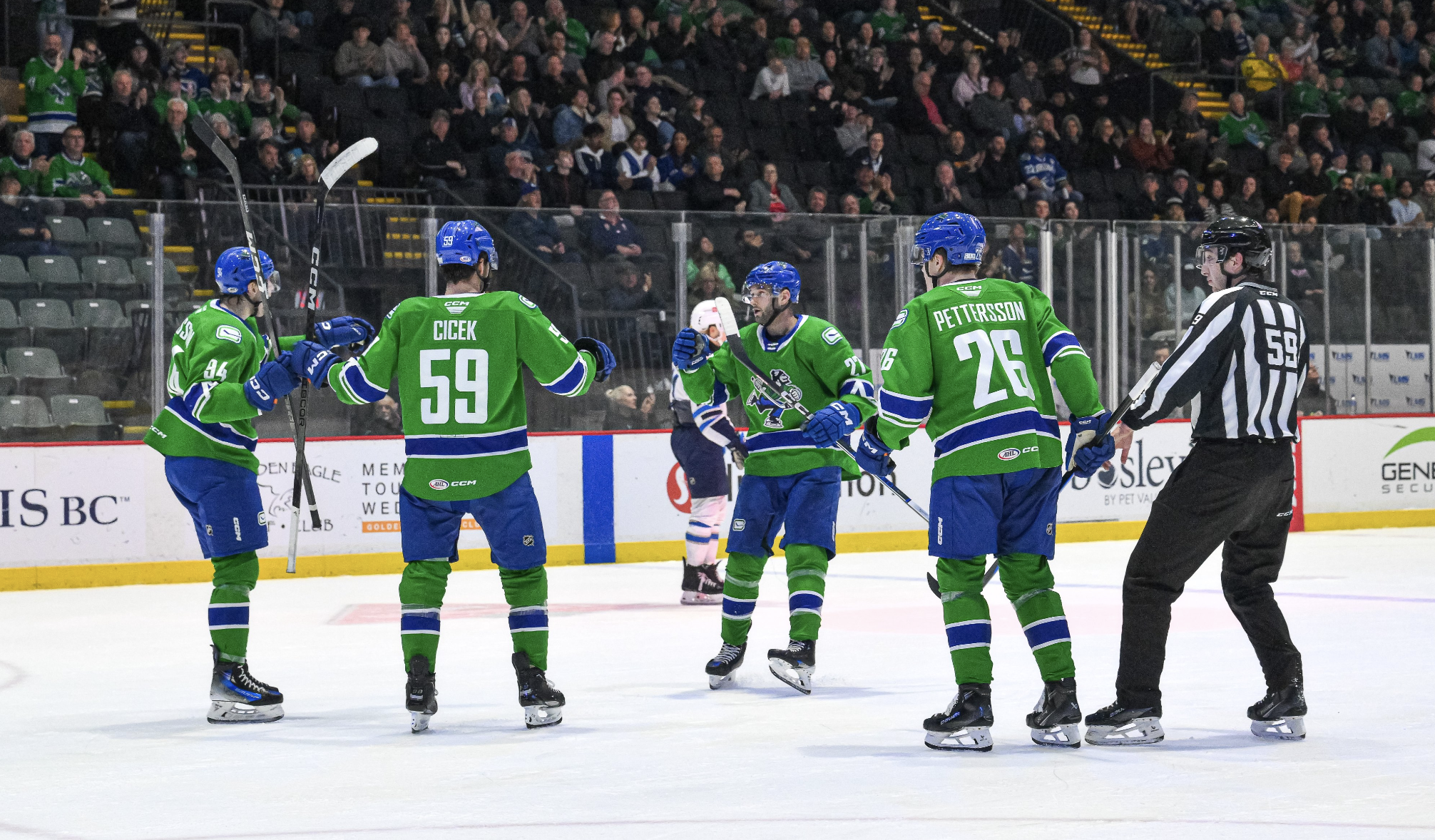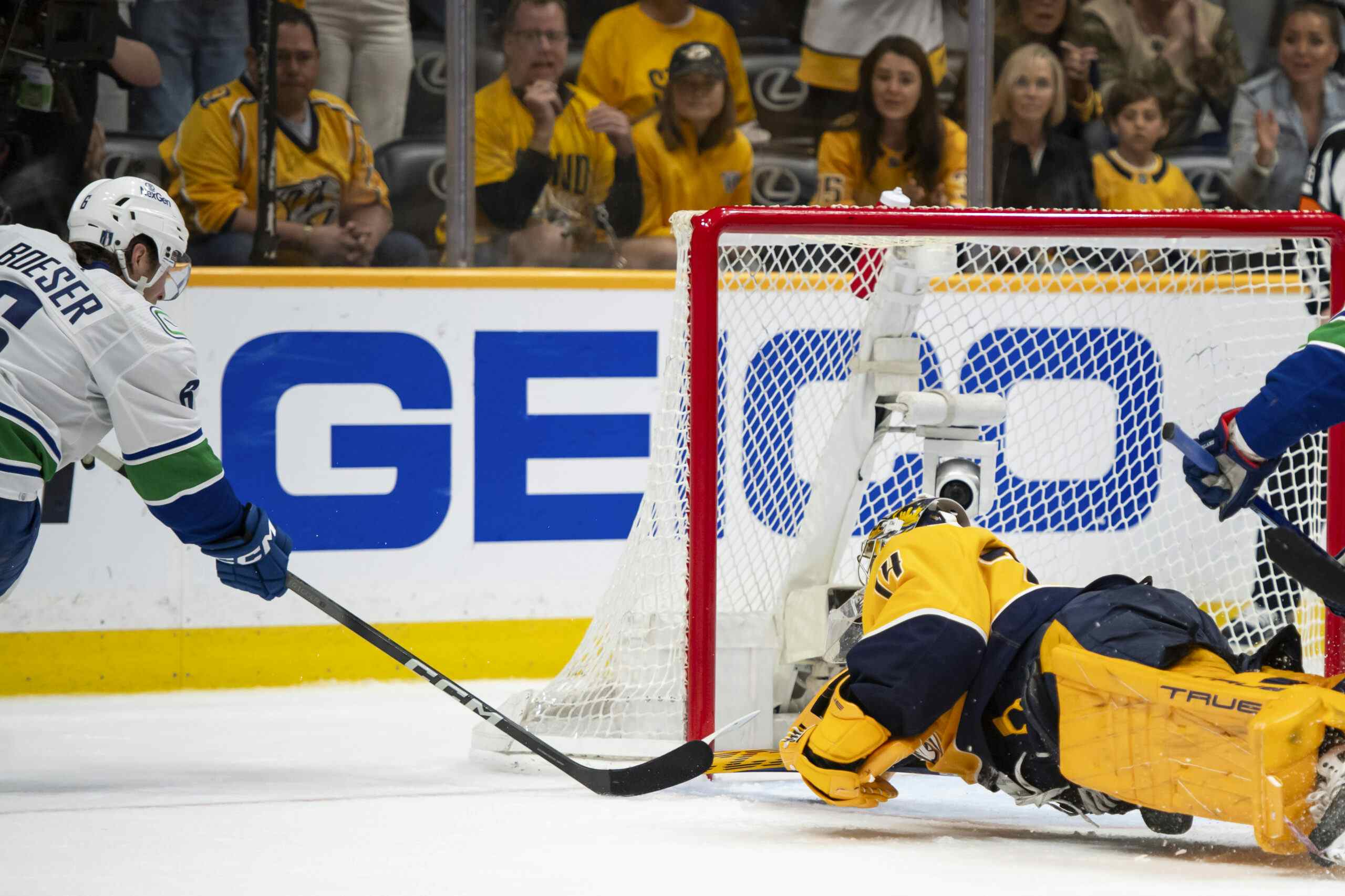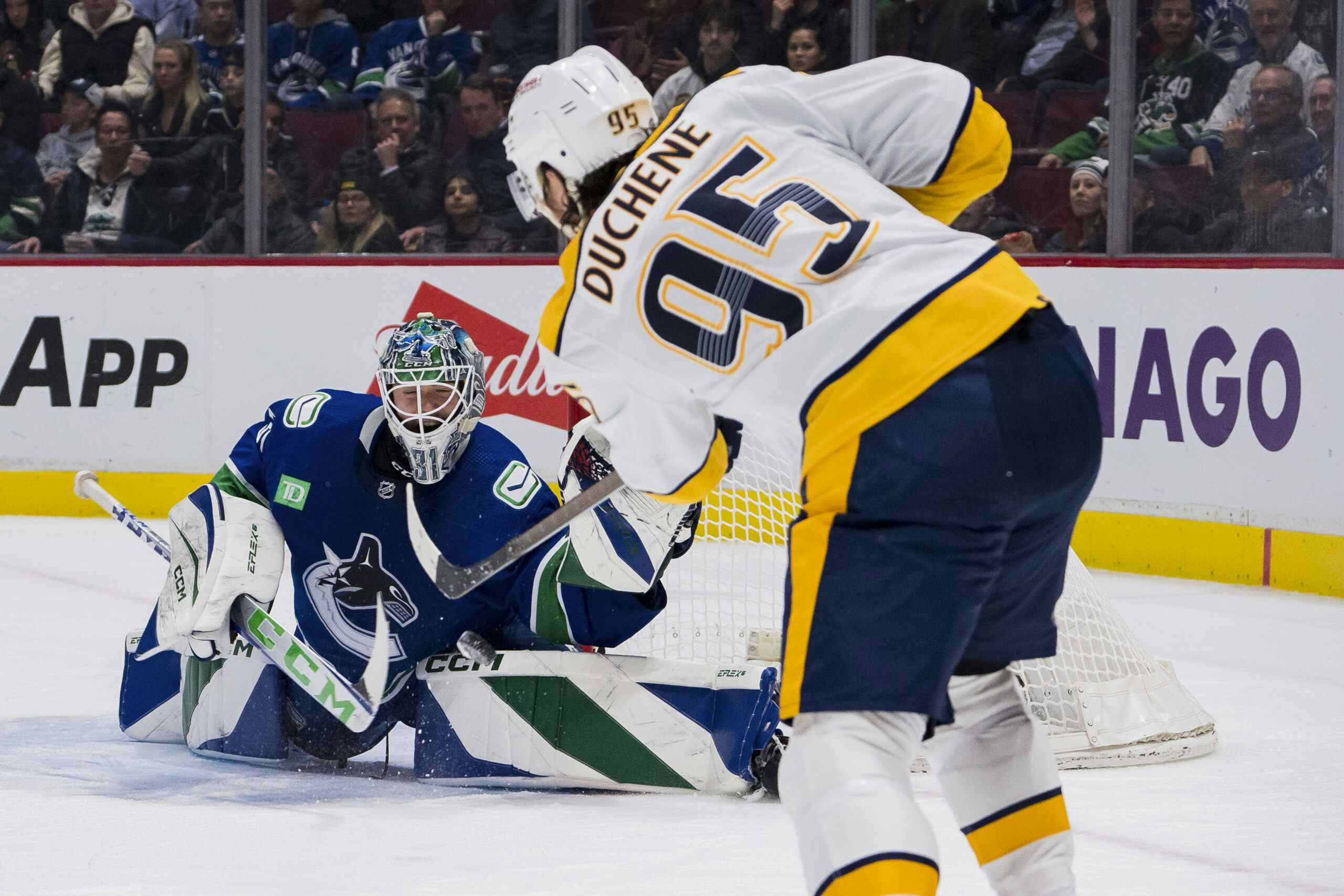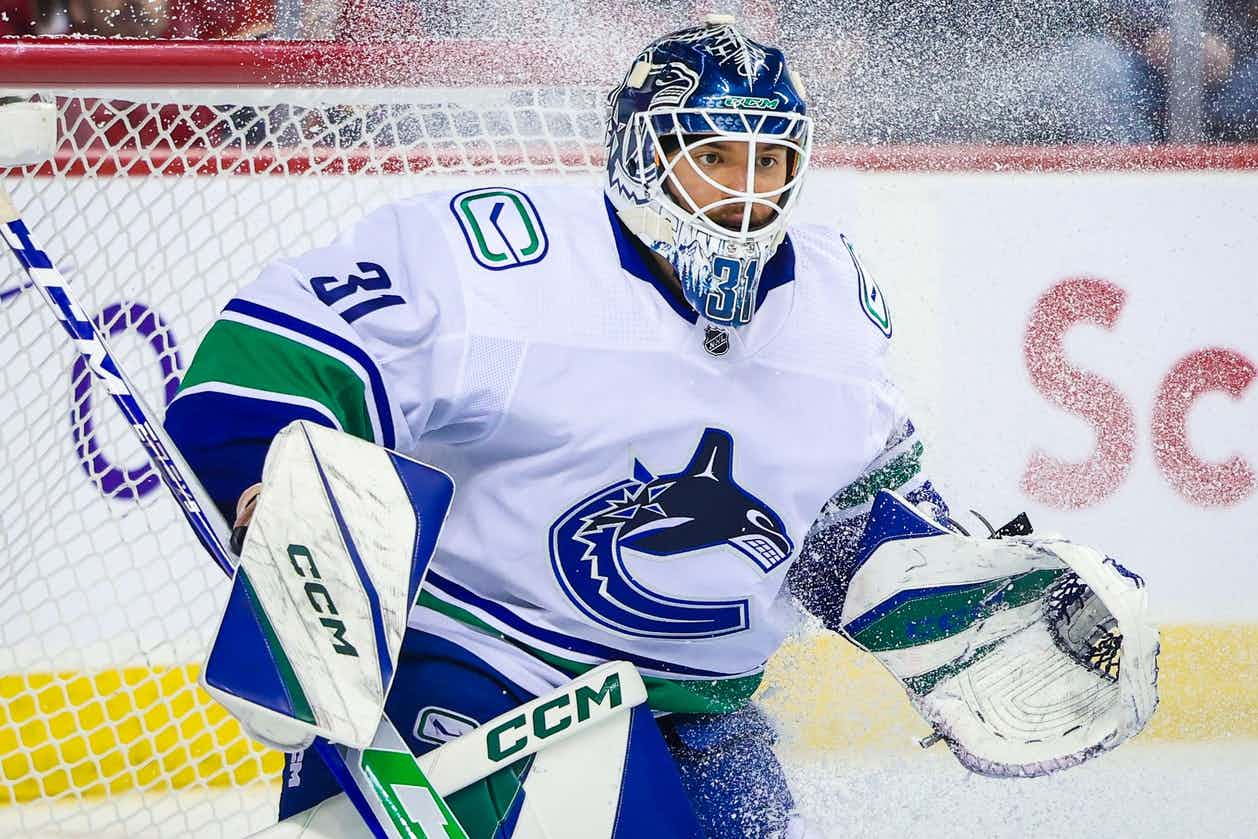Why The Canucks’ Cap Recapture Fight May Not Be Over: What Happens When Shea Weber Retires?
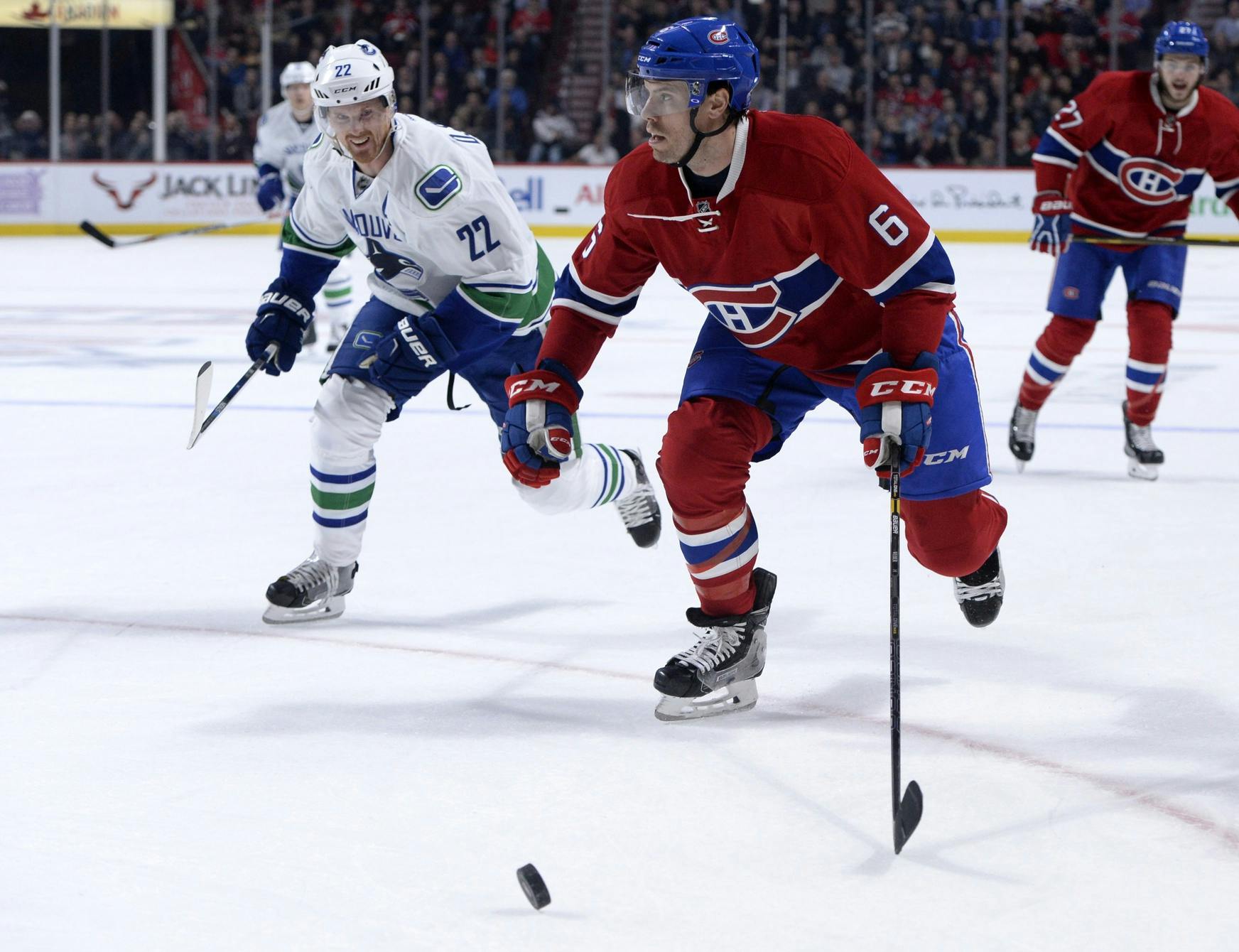
Between Loui Eriksson’s $6 million pressbox gig and more than $3 million for the demoted Sven Baertschi and the bought-out Ryan Spooner, the Vancouver Canucks have a lot of dead cap space. No chunk of the Canucks’ overall salary structure, however, is as useless as the $3,033,206 recapture penalty levied as punishment for the Roberto Luongo contract – and his subsequent early retirement – an annual cap hit that will last until the conclusion of the 2021/22 season.
It should be noted, of course, that Luongo’s retirement also freed the Canucks from paying his $800K of retained salary, making the actual cap impact of the penalty just a hair above $2.2 million.
Jim Benning and Co. made a concerted effort to lobby the NHL against following through on their promise of punitive measures against ludicrously front-loaded contracts, no doubt arguing that the league applying penalties to contracts that had previously been deemed acceptable by the league themselves was inherently hypocritical. In any case, the Canucks lost the argument, and the Luongo recapture hit will remain on their books for the next three seasons – campaigns in which they hope to make the playoffs, and would likely prefer to be spending to the full extent of the salary cap.
Vancouver isn’t the first team to suffer a recapture penalty – that distinction belongs to the LA Kings, who are still paying the last of a five-year, $1.32 million penalty for Mike Richards in 2019/20 – but the organization’s failure to weasel out of it would seem to signal the end of the debate over the controversial rule for good, but that may not be the case.
There’s an event that will be happening in the next few seasons that will give the Canucks one more opportunity to contest the application of the cap penalty, and it’s also something entirely out of the franchise’s control – the eventual retirement of Shea Weber.
The cap hit applied to the Canucks as a result of Luongo’s retirement is certainly an annoyance – and it could one day make the difference between the team landing a key free agent or retaining one of their talented young players. The penalties that will be applied to the Nashville Predators in the event of Weber’s retirement – especially if it happens at the tail-end of his contract – would be outright unmanageable.
| Offseason of Weber Retirement | Age | Years Left In Contract | Nashville Recapture Penalty |
| 2020/21 | 35 | 6 | $4,095,238 |
| 2021/22 | 36 | 5 | $4,914,286 |
| 2022/23 | 37 | 4 | $6,142,857 |
| 2023/24 | 38 | 3 | $8,190,476 |
| 2024/25 | 39 | 2 | $12,285,714 |
| 2025/26 | 40 | 1 | $24,571,428 |
At the age of 34, the native of Sicamous, BC is maintaining a high level of play and production for the Montreal Canadiens – but he’s also suffered several significant injuries over the past couple of seasons, and employs the kind of style that doesn’t traditionally age well. There’s a very real possibility that Weber will retire before the end of his contract, and it could easily happen in the last three years of his deal – which see him paid just $1 million a season in actual salary.
Weber has a tenuous history with the Predators – having attempted to flee the franchise via an offer sheet with Philadelphia and then being flipped for PK Subban in a surprising move, so he doesn’t have much incentive to help his former team out by sticking around. Weber will retire when he decides it’s the right time, and Nashville will have to suffer the consequences – or will they?
At this point, this article will slip into pure speculation – but this author likes to think it’s well-founded. The precedent of the LA Kings, Vancouver Canucks, and others who will have paid recapture penalties by the time Weber retires would seem to preclude the Predators from somehow getting out of paying the toll. But the penalties for Weber retiring in the final three years of his contract are progressively ridiculous – $8 million cripples a team, $12 million likely qualifies as a team’s highest cap hip, and $24.5 million makes it nearly impossible to ice a competent NHL squad.
The NHL has set a clear precedent when it comes to the application of recapture penalties – but it still feels next-to-impossible that they’d actually follow through on tagging the Preds with a $24.5 million ticket. It would make for bad business and even worse optics, especially if Nashville were competitive at the time and forced to auction off assets to compensate for their sudden misfortune.
The NHL could simply elect to not apply the penalty in this one particular circumstance, ruling that the application of such an outrageous cap hit goes against the original intent of the recapture rule.
Matthew Sekeres has been on this beat for a while. In many ways, this seems like the most likely outcome in the case of an ill-timed Weber retirement – and that’s where implications for the Vancouver Canucks come back into the picture. It’s tough to imagine a situation in which the $24.5 million penalty comes to pass, and thus it’s tough to imagine a situation in which Jim Benning isn’t proven retroactively correct about the faultiness of the rule.
If the NHL decides not to apply the cap recapture penalty to the Nashville Predators in the even of Shea Weber’s retirement – or if they decide to apply a reduced penalty, or any other sort of altered punishment – then the Canucks will have serious cause to petition for some compensation. By that point, they’ll no long be paying any penalty for Luongo’s retirement, but they will have already suffered from three full years of a $3,033,206, resulting in more than $9 million of lost potential spending – all coming in the midst of a period in which the Canucks are projecting to compete. A situation in which the Canucks are made to face the full consequences of a rule violation while another NHL franchise gets a mulligan may not seem impossible to a fanbase traumatized by years of perceived bias – but it really should. Compensation would almost certainly be due.
There’s not much precedent for such a set of circumstances, but there is a history of NHL teams being compensated with draft picks for various injustices – and that seems like a probable outcome if and when this situation comes to pass. The Preds will avoid the penalty, the league will shell out a couple of picks to the Canucks, Kings, and others in compensation, and everyone will do their best to forget the whole thing happened.
It’s an awkward position for the league to be in, but it’s also one they could have avoided by thinking through the recapture penalty a little more thoroughly when crafting – or by letting the Canucks out of the penalty right from the get-go. Unfortunately, it’s a little too late for that.
Recent articles from Stephan Roget

